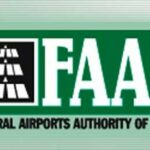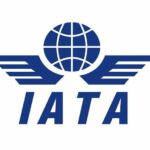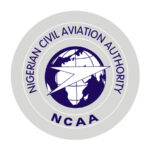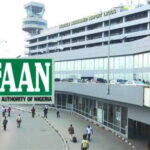The aviation industry recently celebrated the certification of the Murtala Muhammed International Airport (MMIA), Lagos and Nnamdi Azikiwe International Airport (NAIA), Abuja by the Nigeria Civil Aviation Authority (NCAA).
The recertification came after the Federal Airports Authority of Nigeria (FAAN) closed no fewer than 165 at both airports.
The MMIA and NAIA are two busiest airports in Nigeria, taking the largest chunk of the international flights operating to Nigeria.
This is why the certification of the two airports was considered imperative in line with the requirements of the International Civil Aviation Organisation (ICAO) on Aerodrome certification.
- Akpabio pledges NASS support to sustainable energy devt
- Gov Finitiri intevenes in urban, rural development
Certification of international airports as required by the ICAO Annex 14 and Part 12 of the Nigerian Civil Aviation regulations is a global strategy to foster standards and uniformity in the sector. It also strengthens the competitiveness of the airport and opens it to external funding.
In 2021, the two airports had lost their certification following major safety gaps.
One of the issues then with MMIA, Daily Trust learnt, was the airfield lighting at the MMA domestic runway (18right/36 left), which was yet to be fixed forcing aircraft to land at the international wing at night.
In all there were over 160 gaps, which the Civil Aviation Authority (CAA) required FAAN to meet to regain the certification.
But last week, efforts of the new management of FAAN led by Olubunmi Kuku paid off with the certification of the two airports, which was considered a big deal by stakeholders and players in the industry, who argued that the certification was reflective of the work of the current management.
For instance, apart from the airfield lighting issue that has been fixed at MMIA, all the two runways – 18R and 18 L have been fixed while the issue of touting was swiftly addressed by the authority. A Taskforce was established to tackle the issue of touting that has become a hydra-headed monster at the airports.
All these put together convinced the CAA to consider the airports fit for certification; an indication that the airports operate with the highest standards of safety, complying with the global best standards in international airports operation.
Acting Director-General Civil Aviation, Capt. Chris Najomo recalled that in March 2001, the ICAO Council adopted a new Standard that required certification of aerodromes used for international operations.
This Standard became applicable 27 November of 2003. Nigeria initially complied with this provision by certifying two international airports in 2017. The 3-year duration of those certificates lapsed in November 2020 in line with the Nigeria Civil Aviation Regulations in force then.
He stated that at the expiration of NAIA and MMIA aerodrome certificates, a six-month extension was granted to FAAN to operate the aerodromes due to the COVID-19 Pandemic which we all remember had devastating effects on the aviation sector.
However, the extension was granted on the condition that FAAN resolves all outstanding certification CAP items and completes the re-certification process within the extension period, Najomo said.
According to him, there were 136 items for MMIA and 29 items for NAIA.
He disclosed that since then, NCAA and FAAN got down to the hard work of ensuring closure of the critical certification findings as required by the Regulations.
He explained that the presentation of the certificates “is not an indication that the airports are 100% compliant with safety standards but it is a testament of their compliance with the minimum certification and operating requirements based on risk assessment and presentation of an acceptable Corrective Action Plan (CAP) for continuous implementation by the aerodrome operator.”
With attention now shifted to other international airports in Kano, Port Harcourt, Enugu, among others, stakeholders say a lot more need to be done to maintain the standards for the retention of the certification.
Aviation stakeholder and one-time General Manager, Public Affairs of FAAN, Mr. Yakubu Dati said getting Abuja and Lagos airports certified in less than one year of the present management is a feat that needs to be celebrated.
“First and foremost, it means that there is a rebound in the aviation sector, especially in the area of the growth of the industry. For the first time, we are having a woman in the agency and within just a short time, barely 11 months, she has been able to get this in the kitty- certification of two airports, which wasn’t done four years ago and this has put Nigeria on the global map. She was also recently made the board chairman of the Airport Council International Africa Region. She came with a focus and direction to turn things around,” she said.
Olubunmi Ohunayo, aviation analyst and General Secretary of Aviation Roundtable and Safety Initiative said the certification of the airports came as a result of hard work by the FAAN management which closed the dozens of gaps. However, he advised that the certification must be retained by continued monitoring and maintenance of the infrastructure.

 Join Daily Trust WhatsApp Community For Quick Access To News and Happenings Around You.
Join Daily Trust WhatsApp Community For Quick Access To News and Happenings Around You.


